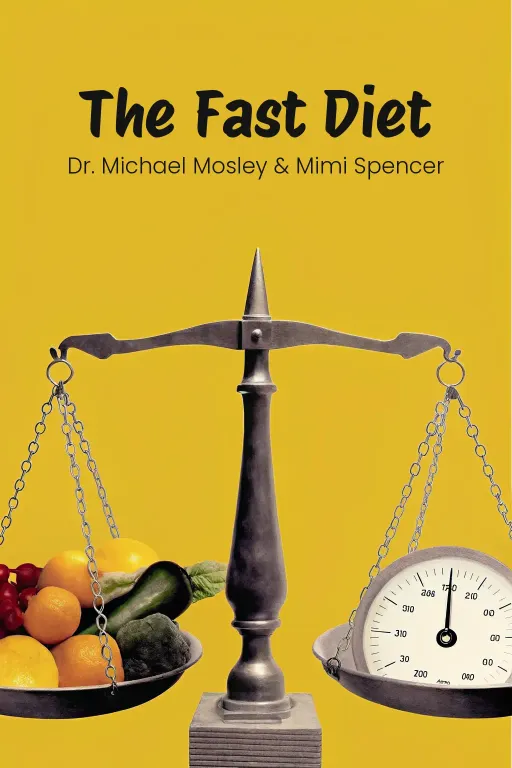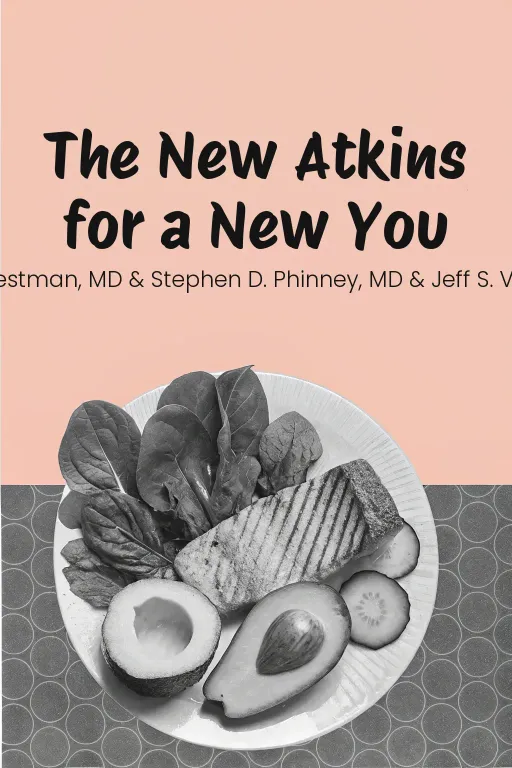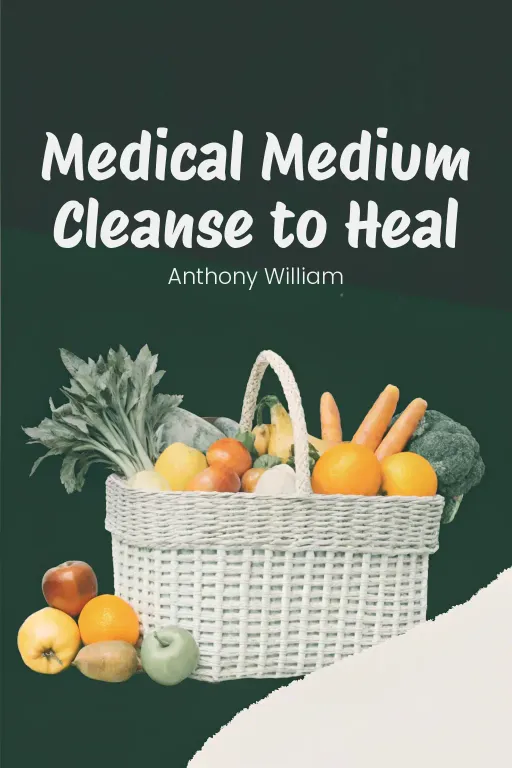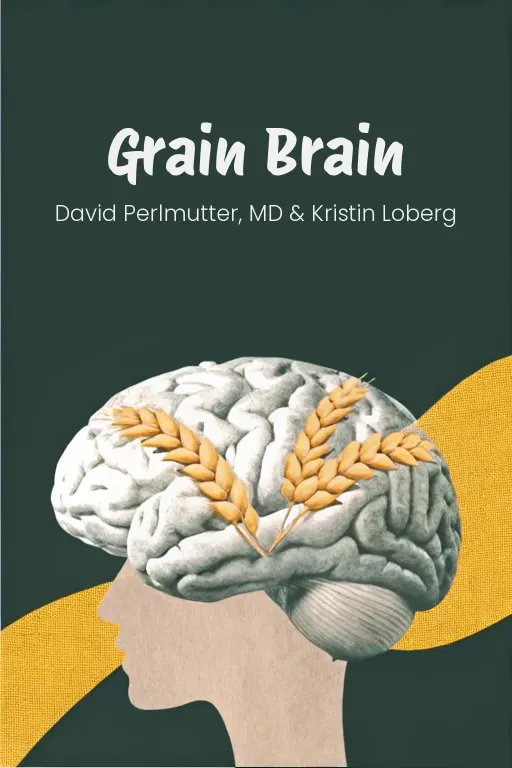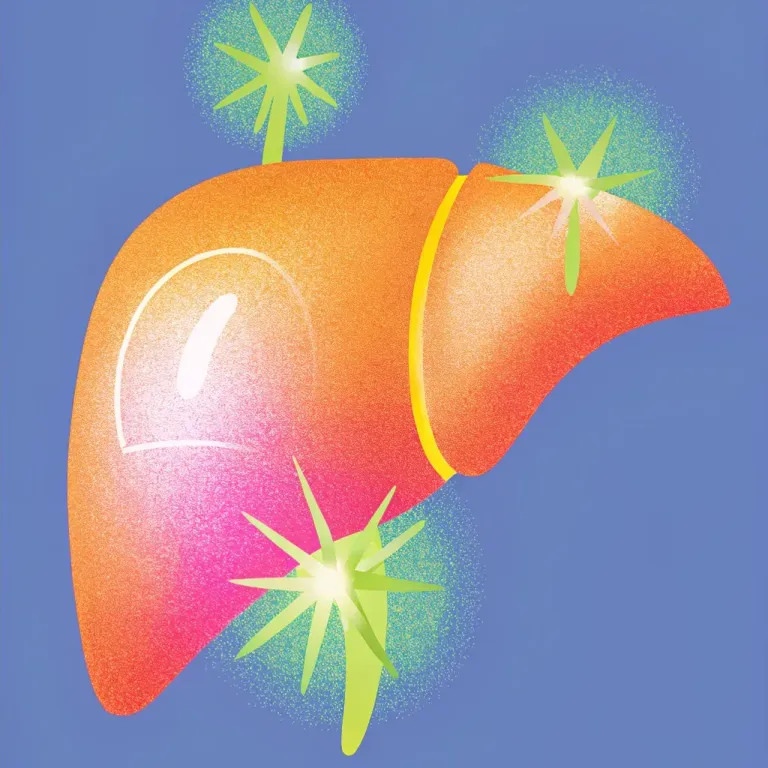
Love Your Liver: Reset, Recharge!
Podcast by Beta You with Alex and Michelle
Answers to Eczema, Psoriasis, Diabetes, Strep, Acne, Gout, Bloating, Gallstones, Adrenal Stress, Fatigue, Fatty Liver, Weight Issues, SIBO & Autoimmune Disease
Love Your Liver: Reset, Recharge!
Part 1
Alex: Hey everyone, welcome back to the show! Pull up a chair, because today we’re diving deep into a part of you that's probably overworked, definitely underappreciated, and maybe even a little bit forgotten. Michelle, I gotta ask – what’s the one organ keeping you ticking that you’ve probably totally ignored so far today? Michelle: Hmm, is this a trick question? I'm gonna guess... my appendix? Wait, no, spleen? Alex: Good guesses, but nope. I'm talking about your liver. This thing is a straight-up powerhouse! Seriously, it's quietly juggling a million tasks – detoxing, helping you digest, storing nutrients, keeping your energy levels balanced. And what do we do in return? We bombard it with caffeine and processed junk. Michelle: Okay, guilty as charged on the caffeine front. But, honestly, what makes the liver so special? I mean, shouldn't it just... work? Like, isn’t that its job? Alex: That's the thing, Michelle. It wants to work optimally. But when you throw in processed foods, environmental toxins, stress, and even emotional stuff, it gets overloaded really quickly. Today, we’re going to unpack how this incredible organ is not just a behind-the-scenes worker, but actually crucial for your emotional well-being, your resistance to chronic diseases, and how truly energized you feel. Michelle: Alright, you’ve piqued my interest. Is there, like, a user manual or a cheat sheet for this liver upgrade? Because I definitely need one. Alex: Absolutely! First, we’ll break down the liver’s superpowers and how our modern lifestyle throws a wrench in things. Then, we're going to lay out the truth about the liver’s best friends and worst enemies when it comes to food – fair warning, you might be rethinking your breakfast habits. And finally – this is the good part – we’re diving into the Liver Rescue 3:6:9 cleanse, along with some meditative practices, to really hit the reset button for both your body and mind. Michelle: So, if I'm hearing you right, the liver's been pulling all-nighters without getting paid, and today we're finally giving it the “raise” and vacation it deserves? Alex: Precisely! Your liver has been your silent champion all along, and it's about time we gave it the credit, care, and respect it's earned. Ready to get started?
Liver Function and Modern Challenges
Part 2
Alex: Okay, let's dive in. The liver is seriously a superstar. It's not just some organ chilling out in your abdomen; it juggles over 2,000 essential tasks every single day. Detox, digestion, nutrient storage, even mood regulation through hormones and neurotransmitters. Talk about a workhorse! Michelle: Two thousand tasks? Seriously? That sounds like my liver's clocking overtime while I just binge-watch TV. So, what exactly are we doing to make its job so tough? I mean, most people probably don’t even think about what their liver's dealing with on a daily basis. Alex: Well, modern life hasn't exactly been a spa day for the liver, let's put it that way. Think about it: environmental toxins—air pollution, plastics, you know, those synthetic compounds in our personal care products. Then you pile on the typical modern diet—high-fat, high-sugar processed stuff. That's a lot for the liver to break down. And of course, alcohol. Even small amounts add extra stress to the detox process. Michelle: So, it’s like the liver is trying to run a marathon, but it’s carrying a backpack full of all our worst choices. Fantastic. Alex: Exactly! And this overload can lead to what some people call "dirty blood." Normally, your liver filters all sorts of stuff from your bloodstream—toxic chemicals, viral byproducts, the whole works. When it’s swamped, some of those toxins slip through. They can act like neurotoxins, stressing out your nervous system, or dermatoxins, triggering skin issues. Michelle: Wait, are you saying that those random health things people get—acne or unexplained fatigue—that could be the liver throwing in the towel? Alex: Precisely. Those are distress signals. Fatigue, stubborn weight gain, even hormonal imbalances—things we often dismiss as minor annoyances—they could be clues that your liver’s overloaded and struggling after years of filtering too much junk. Michelle: So, is that why everyone's always talking about “clean eating” and detox diets? Are they really necessary, or is it just another fad preying on our health anxieties? Alex: That's a great question! The key is that true liver support isn't about trendy terms; it's about lessening the toxic load and giving your liver the right tools to thrive. "Clean eating," when done right, means loading up on fruits, vegetables, and antioxidant-rich foods—wild blueberries, leafy greens, things like that. They help the liver repair, fight oxidative stress, and keep doing its crucial job. Michelle: Alright, I've got half a bag of blueberries in my freezer. Does that count as a head start? Alex: Definitely a fantastic start! I would say don't ruin it with dairy or too much sugar, because that could counteract some of the benefits. We need food that makes the liver’s job easier, not harder. So, that means cutting back on fats and processed carbs, and not just adding in the healthy stuff. Michelle: Hold on a second. Are we saying that high-fat diets, like keto, are bad for the liver? I thought fat was supposed to be the magic bullet these days. Alex: Well, it's nuanced. Fats aren’t inherently evil, but excess fats put a huge workload on the liver. Here’s why: fats are energy-dense and need bile to break down. Bile is made in the liver, so a high-fat diet means the liver has to pump out extra bile, on top of everything else it’s doing. Over time, that constant demand can slow its ability to handle toxins and sugars, potentially leading to things like fatty liver or insulin resistance. Michelle: Ah, so those midday crashes after a greasy burger and fries are starting to make sense. My liver’s probably just exhausted from playing catch-up. Alex: Exactly. In the short term, you might feel fine, but that sluggishness adds up over time. And eventually, you might start seeing symptoms like persistent fatigue, unexplained bloating, dark under-eye circles, or mood swings. It's all connected to liver overload. Michelle: Okay, I get it. I might have had a few too many fries in my day. But how worried should I be? Are we talking about mild hiccups, or could this lead to serious trouble down the road? Alex: If you let a sluggish liver go unchecked, it can lead to more severe problems. For example, non-alcoholic fatty liver disease, or NAFLD, is becoming a global health issue. Basically, it happens when fat builds up in the liver, causing inflammation and liver cell damage. And the sneaky part is, the early signs are often subtle, so people don't realize what's happening until it's progressed. Michelle: How subtle are we talking? "Random headache" subtle, or is it something more obvious? Alex: Think persistent fatigue that doesn't go away, no matter how much sleep you get. Or unexplained weight gain, especially around the middle. Skin issues, too—like dark circles or patches of skin discoloration. The liver tries to send signals, but we often chalk them up to something else. Michelle: It’s kind of wild how an organ as important as the liver can fly under the radar for so long. So, if we’re missing the clues, how do we actually take control and give it the help it needs?
Dietary Framework for Liver Health
Part 3
Alex: So, understanding these challenges naturally leads us to explore actionable dietary solutions to support liver health. And that’s “really” the heart of our discussion today—a framework designed to nourish and rejuvenate the liver. Think of it this way: first, we’ll talk about the foods and supplements that can heal and support the liver. Then, we’ll dig into the substances that do the most harm. And throughout, we’ll emphasize how dietary choices aren’t just preventative but can actually restore liver function. Michelle: Alright, so, hit me with the liver superheroes. What needs to go on my next grocery list? Alex: Let’s kick things off with wild blueberries. And they’re more than just Instagram smoothie bowl fodder. Wild blueberries are packed with anthocyanins—potent antioxidants that fight oxidative stress. This is critical because your liver has to handle free radicals created by toxins you’re exposed to—pollution, processed food, even just stress. Antioxidants in wild blueberries neutralize those free radicals and give your liver, you know, the breathing room it desperately needs to repair itself. Michelle: So, basically, my regular urban life, complete with traffic fumes and stress-eating snacks, is a horror movie for the liver. Got it. How many of these blueberries are we talking? A handful? A bucket? Alex: A handful daily is all it takes, “really”. Add them to smoothies or just eat them as-is. They're especially good for people exposed to high pollution levels – think city dwellers – because those antioxidants reduce the inflammation caused by toxins hanging out in your bloodstream. This buys the liver time to process and eliminate them. Michelle: Superfood sorted. What else deserves MVP status for liver care? Alex: Spinach and asparagus are next. Spinach is rich in chlorophyll, which binds to heavy metals and toxins so the liver doesn’t have to work as hard. It also supports the liver’s role in storing and mobilizing essential nutrients. Asparagus, on the other hand, is loaded with glutathione. That’s a master antioxidant that not only protects your liver cells but helps the liver process fats more efficiently. Michelle: So, spinach and asparagus are basically like your liver’s personal trainers—cleaning up the system and improving its efficiency. But is it all just plants and berries? Are there any heavy hitters from the supplement aisle here? Alex: Absolutely, supplements can make a significant difference. Spirulina is a standout—it’s a blue-green algae packed with nutrients, but its real superpower is detoxification. It binds to heavy metals like mercury and arsenic, helping flush them out of your system. If you’re someone who works in an industrial setting or simply grew up exposed to lead pipes, for example, spirulina can be a game-changer. Michelle: So it’s like a vacuum cleaner for toxins. I like that. But does it leave you with that algae-aftertaste situation? Alex: Not if you mix it into smoothies or juices. And let's not forget turmeric, which contains curcumin—an anti-inflammatory powerhouse. Chronic inflammation in the liver, often from a high-fat diet or alcohol, can lead to conditions like non-alcoholic steatohepatitis, or NASH. Adding turmeric—whether as a spice, a tea, or even a supplement—actively works to calm and heal that inflammation. Michelle: Okay, so spirulina for the detox, turmeric for the inflammation, and wild blueberries for the antioxidants. I’m starting to see the strategy here. But what about the stuff we’re supposed to avoid? I’m assuming my nachos aren’t exactly invited to this liver party? Alex: Not even close, Michelle. The biggest villains are alcohol, dairy, processed fats, and—this surprises many people—eggs. Let’s break them down. Alcohol is a well-known liver toxin. Drinking, even within “moderate” limits, forces your liver to work overtime. And over time, this leads to inflammation, fat buildup, and even scarring, or cirrhosis. Michelle: So even for casual drinkers, the liver’s still getting the short end of the stick? Alex: Exactly. Alcohol alters how the liver processes everything else, significantly slowing its metabolism. And dairy is another one people don’t think about—it’s highly mucus-forming, which can gums up the liver’s blood vessels and obstruct detox pathways. Switching to plant-based milks can sidestep this issue without losing nutrients like calcium. Michelle: Sure, oat milk has been trendy anyway. But eggs? I thought they were basically synonymous with a healthy diet. What's the deal there? Alex: Eggs, especially their yolks, are perfect food for pathogens lingering in the liver—like the Epstein-Barr virus or other dormant infections. They act as fuel for viral replication, worsening symptoms for people who already have an overburdened liver. If you’re serious about making a change, replacing eggs with plant-based proteins like lentils and chickpeas can provide a huge benefit. Michelle: Yikes. It’s like I’ve been holding secret pathogen feasts every weekend without even knowing it. And processed fats—let me guess, fried foods are another no-fly zone? Alex: Bingo. Processed fats from fried or packaged foods overload the liver’s bile production, which, as we talked about earlier, is “really” not good. It’s another layer of unnecessary stress for an already hard-pressed organ. So, making those swaps—cutting down alcohol, dropping dairy and eggs, avoiding processed fats—it just frees up the liver to focus on actual detox work. Michelle: Alright, I’m building my mental checklist here: blueberries instead of booze, spinach instead of fried snacks, spirulina smoothies instead of eggs, and turmeric tea. But—just to play devil’s advocate—what about all those anti-fruit people out there claiming that even natural sugars are bad? Alex: Ah, the anti-fruit narrative. It’s one of the most harmful myths out there. The sugars in fruit are not the problem—processed sugars are. Fruits like apples, for example, are rich in pectin, a soluble fiber that binds to toxins for excretion, directly aiding the liver. Far from being harmful, fruits are an essential energy source for the liver to perform its countless tasks. Michelle: So apples are detox’s secret weapon, huh? No guilt about that mid-afternoon apple snack anymore. Alex: Not at all! And it’s not just apples—bananas, papayas, and berries all contribute to a nutrient-rich, liver-friendly lifestyle. When you distinguish processed sugar from natural fruit sugars, it becomes clear which is the “real” enemy. Michelle: I gotta say, this framework makes it easier to understand how food can literally act as medicine. The liver does all the hard work, but feeding it the right ammunition keeps it from burning out. Alex: Exactly. By prioritizing healing foods like wild blueberries, leafy greens, and detoxifiers like spirulina, while cutting out the harmful ones like alcohol and processed fats, you’re creating an environment where your liver thrives. This isn’t just about avoiding disease—it’s about unlocking energy, resilience, and long-term vitality.
Holistic Healing Practices
Part 4
Alex: So, with the right diet as a foundation, we can explore specific detox methods to really boost liver healing. This is where it gets exciting – we’re not just helping the liver function day-to-day, but actively assisting it in cleaning up shop. The Liver Rescue 3:6:9 detox is perfect example; it’s designed to rejuvenate your liver phase by phase, gently but effectively. Michelle: Structured detox, you say? Sounds a bit hardcore. I’m not gonna be stuck sipping green juice for a week, am I? Alex: Not at all! The beauty of the 3:6:9 program is that it’s balanced and phased over nine days, giving your system time to adjust. You start gently, then move into deeper cleansing, gradually freeing your liver from toxins, while still nourishing yourself. It’s more about giving your liver a break than depriving yourself. Michelle: Okay, I like the sound of a grateful liver. Can you break down these three phases? What exactly happens in each one? Alex: Absolutely! Phase one, the "3," is all about preparation. For the first three days, you cut out fats and load up on hydrating fruits and veggies. Apples and dates are great because they're gentle on your system but still packed with nutrients to kickstart the process. For example, Sarah, a busy professional feeling exhausted and bloated, started here. Nothing fancy – just lemon water in the morning, an apple-date smoothie, and lighter meals. Within days, she felt more energetic and less bloated. Simple, but super effective. Michelle: Hold on, apples and lemon water make that kind of difference? Most people think detox means green powders and starving themselves. Alex: Exactly! That's a common misconception: detox doesn't have to be punishing to work. You're really just reducing your liver’s workload by avoiding heavy foods, while giving it hydrating, nutrient-dense support. Apples contain pectin, a soluble fiber that helps bind and remove toxins. It’s gentle, but potent. Michelle: So, the "3" lightens the load. What about the "6" phase? I'm guessing things get a bit more intense? Alex: Exactly, that's when the real cleansing begins. Over those six days, you focus on even more potent liver supporters. Celery juice becomes a daily must-have – it's loaded with mineral salts that go straight to the liver, helping flush out toxins. And foods like Liver Rescue Smoothies take center stage. These smoothies combine pitaya, spinach, and wild blueberries for maximum antioxidant power. Listen, David, a chef dealing with skin issues saw this in action. By sticking to those smoothies and celery juice, his skin cleared up noticeably and the inflammation went down. Michelle: Celery juice again? Seems like that's all anyone's drinking these days. Is it really that amazing? Alex: The hype is deserved! Celery juice contains cluster salts that act like a ‘toxin magnet,’ pulling out harmful substances that clog up the liver. It also deeply rehydrates the cells, boosting the liver’s ability to function efficiently. So, in this middle phase, your liver is getting the tools it needs to repair itself. Michelle: Alright, I can't argue with results like David's. What about the final phase, the "9"? How does that push things further? Alex: So phase nine is about deeply releasing toxins – really turbocharging the body. You shift to consuming only nutrient-rich fluids like blended juices, which gives your digestive system a break. This allows the liver to focus all its energy into breaking down and flushing out accumulated waste. Take Ana, a teacher struggling with brain fog and low energy. She tackled this phase by adding cucumber-apple blends to her routine. By day nine, she felt lighter and more mentally clear. She called it empowering. Michelle: That's some dedication – no solid food?! I can see that scaring some folks off. What keeps people going through those final three days? Alex: It's definitely a mental and physical challenge. It’s not just about the food, but about the self-empowerment that comes with taking care of your body. People like Ana often say it's transformational because it cultivates a deeper connection with their health and resilience. Michelle: Makes sense – the detox becomes a reset for both body and mind. But how exactly does the mind fit in? You mentioned something about the liver's emotional connection earlier. Alex: That's a crucial piece of holistic healing. The liver carries not just physical toxins, but emotional stress as well. When it’s overloaded, it can impact hormones, neurotransmitters, even your overall sense of well-being. People often report irritability, sadness, or anxiety, and they may not realize it's connected to their liver. Michelle: Wait, emotional stress affects the liver, and then the liver affects your mood? That's a crazy feedback loop. So, are we supposed to start talking to our livers now? Give it a little encouragement? Alex: Kind of! But seriously, mindfulness practices can be very beneficial. Take the Liver Cooling Meditation – a guided visualization where you imagine your liver bathed in calming light. Joan, a working mom struggling with constant irritability, found it so helpful. Just ten minutes at night helped her release emotional tension and ease her physical symptoms. The interconnectedness is remarkable. Michelle: Sounds pretty good, I must admit. Ten minutes for meditation? Even a skeptic like me can find that kind of time. But is mindfulness enough, or is there more to emotional care? Alex: Mindfulness is one tool, but self-compassion is just as vital. People struggling with chronic issues, like skin problems or fatigue, often harshly criticize themselves for ‘not doing enough.’ Changing that narrative can be transformative. Naomi, for example, began to see her skin issues as a way her liver was asking for support. Once she adopted that perspective, she stopped being critical and started approaching her health with kindness. That simple shift put her on the path to long-term healing. Michelle: That makes sense – if you're kinder to yourself, it's probably easier to stick with the lifestyle changes your body needs. Mindfulness plus compassion, all washed down with celery juice… Talk about a complete package.
Conclusion
Part 5
Alex: Okay, let’s bring it all together. I mean, the liver really is a bit of a superhero, isn't it? It's juggling everything—detox, digestion, immunity, and even our emotions. But, you know, our modern lifestyles, with the high-fat diets and all those environmental toxins, often push it way too hard. Michelle: Right. We’ve talked about the essentials, like how things like wild blueberries, spinach, and spirulina can really help heal and strengthen your liver. And on the flip side, alcohol, dairy, and processed fats are working against it. And, uh, let's not forget some of the surprising ones, like eggs, which apparently can fuel hidden pathogens that are already stressing your liver out. Alex: Precisely. And it’s not just about food. We also touched on the Liver Rescue 3:6:9 program, which is a phased detox that helps you repair and reset your liver. Combine that with some mindfulness and self-compassion, and you're not just supporting a single organ, you’re really looking at a full transformation – body, mind, and soul. Michelle: So, the big takeaway here: Your liver really has been working overtime, right? Maybe it's time we all stop ignoring the signals and start showing it some love. Even just adding wild blueberries to your breakfast, or just squeezing in ten minutes of mindfulness at night, those small steps can actually make a real difference. Alex: Exactly! Your liver deserves a break. It's ready to thrive if you just give it the support it needs. So, why not start today? Go on, grab that celery – your liver will thank you for it.


